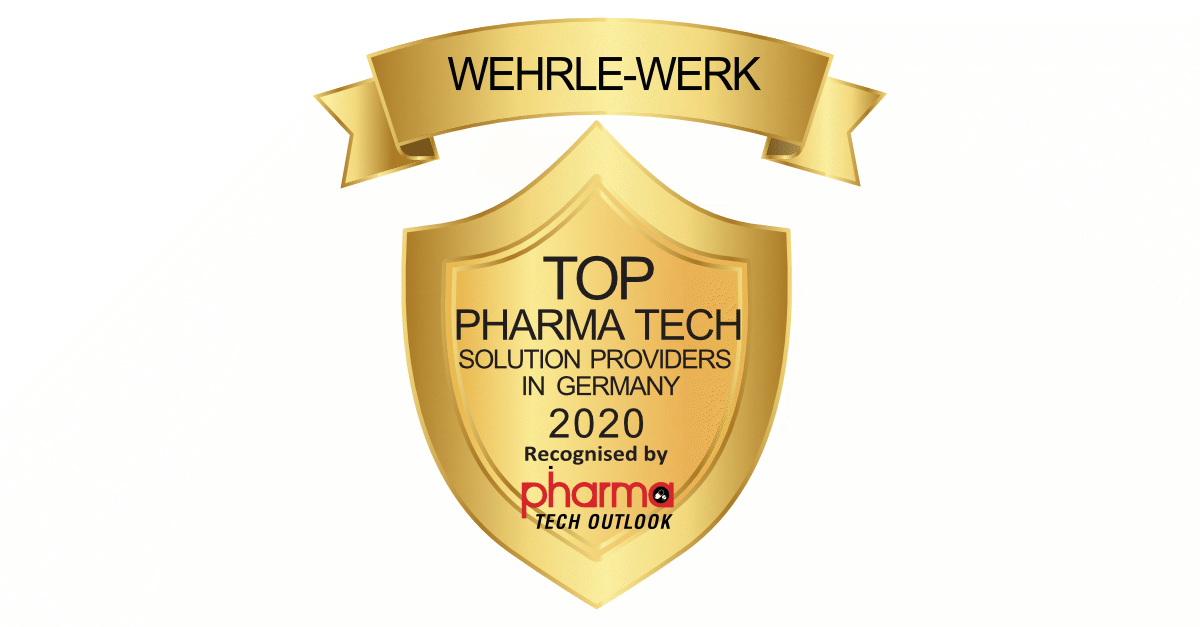Pioneering intelligent technologies for wastewater treatment
The treatment of pharmaceutical wastewater
Environmentalists have been crying hoarse for long over the potential risks of pharmaceutical pollution. With water playing an integral part in the pharmaceutical manufacturing lifecycle, active pharmaceutical ingredients in wastewater, when discharged to the environment, may lead to the creation of multi-resistant germs in rivers and lakes. Treating pharmaceutical wastewater proves to be a challenge, and pharma producers are under the radar to contribute to improved water stewardship and take concrete measures to eliminate contaminants from their production wastewater. Against this backdrop, the German-based WEHRLE-WERK, with profound expertise in treating complex wastewater from the production of pharmaceutical drugs, can help pharmaceutical companies achieve this reliably and cost-effectively.
With over 300 reference plants across 45 countries, WEHRLE builds on a 160-year-old legacy as a top industrial boiler manufacturer in Germany. About fifty years ago, WEHRLE started to build boilers for waste incineration plants and subsequently developed high-duty process technologies to treat one of the most challenging wastewaters — landfill leachate. “We built our first plants about 30 years ago – first for leachate treatment, then – because this technology offers many benefits – also for the treatment of complex industrial effluents,” says Robert Koerner, Board Member and Head of Marketing and Strategic Sales, WEHRLE-WERK.
As a pioneer and global technology leader in this niche market, WEHRLE-WERK builds modular industrial effluent treatment plants that can be easily extended to support production growth and the corresponding increase in wastewater. In addition to modularity, the highly automated plant adapts to the effluent flow automatically. In pharma production, pharmaceutical compounds are often produced in batch processes leading to a sudden high stream of wastewater. Contrary to building large tanks for collection and subsequent processing, the company’s treatment plant automatically adapts to effluent capacity.
What’s more, the whole plant is encapsulated and facilitates total isolation from the production wastewater to the environment. “Our plants are very compact, space-saving and simple enough to be operated by a small team,” states Koerner. Besides, the WEHRLE-WERK team also supports the operators through remote diagnostics to mitigate problems, if any.
As an engineering company and plant builder, as opposed to the one-product-fits-all standard solution, the WEHRLE-WERK team designs solutions with smart process combinations tailor-made for the client’s specific site conditions and extension plans. Since WEHRLE operates several plants, the feedback received from its plant operators is incorporated to optimize the design of their projects. Moreover, lab tests are run on the original wastewater and on-site piloting undertaken for several months if deemed necessary, to optimize the plant design to suit the conditions on-site.
"Our plants are very compact, space-saving and simple enough to be operated by a small team"
On an equal footing, WEHRLE-WERK, in line with customer demands, is focused on wastewater utilization, meaning processing it to a level to be re-used for internal purposes. The capabilities also include generating biogas from the effluent to be used for local heating and electricity production and realizing “zero liquid discharge factories”.
In an implementation highlight, a pharma producer in Scotland with a conventional wastewater treatment plant wanted to increase production. They had planned to extend their existing effluent treatment plant, which would have resulted in the consumption of more space, electricity and chemicals. It was at this juncture that WEHRLE entered the picture. The team started by first mapping all the wastewater streams in the factory, developing an overall wastewater management system and building compact side-stream treatment plants instead of extending the existing large plant. This resulted in a wastewater treatment that now produces up to 20.000 kWh electricity and heat energy of about 20.000 kWh per day for internal use. Alongside, the consumption of chemicals reduced by over 30 per cent while the effluent quality improved by a factor of five. Koerner sums WEHRLE’s distinguishing stance in the industry, “If I translate the feedback that we collect after project completion as part of our ISO 9000 procedure to something like Amazon stars, it would correspond to 4.8 out of 5 stars, which is unique in this business.”
WEHRLE has been awarded one of the top 10 solution providers regarding the treatment of pharmaceutical wastewater

